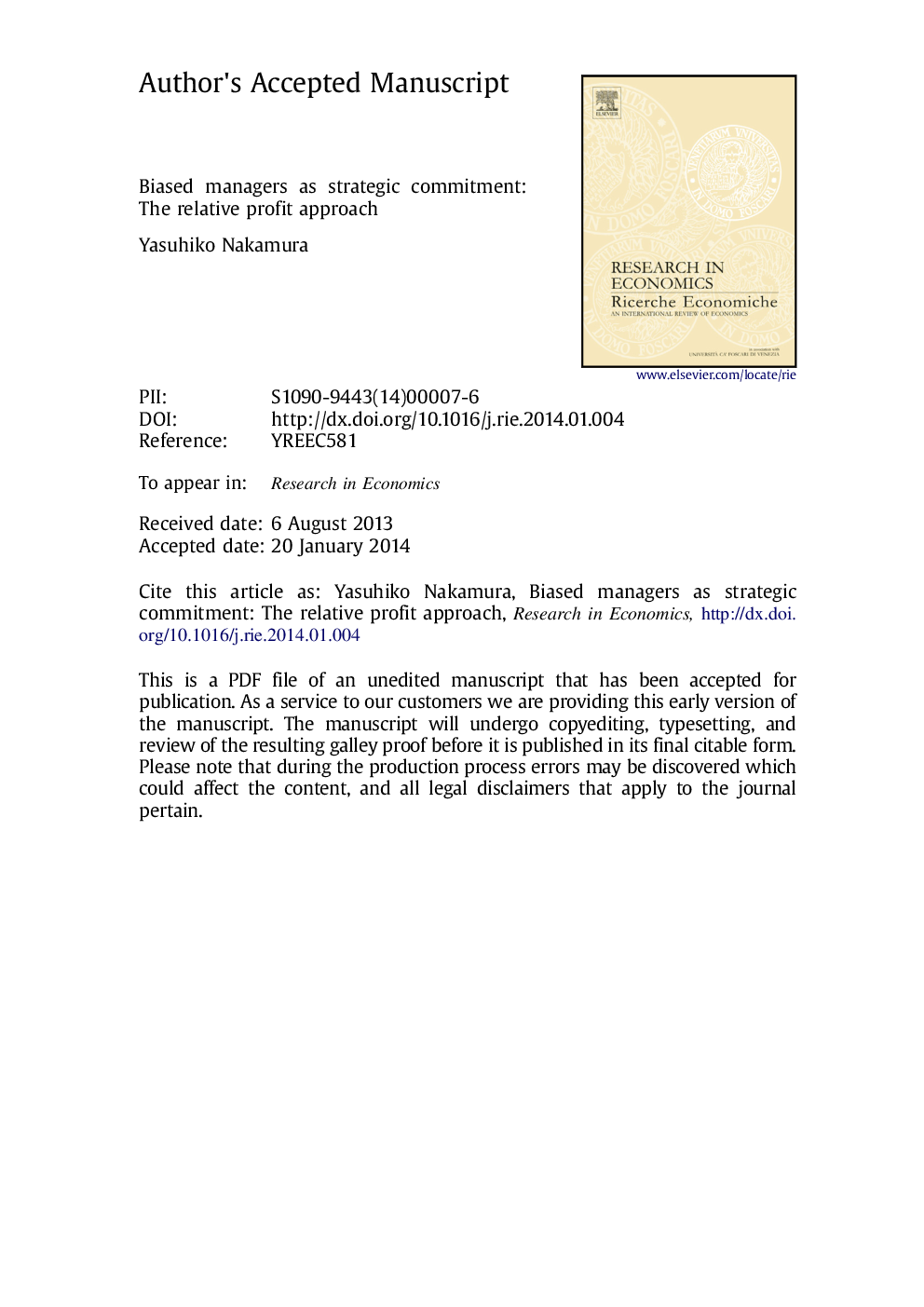| Article ID | Journal | Published Year | Pages | File Type |
|---|---|---|---|---|
| 10482439 | Research in Economics | 2014 | 18 Pages |
Abstract
This paper analyzes a duopolistic model wherein each firm׳s owner can hire a biased manager for strategic reasons. We focus on the situation wherein each firm׳s owner evaluates the performance of her/his manager on the basis of her/his relative profit, which is equal to the weighted sum of her/his absolute profit and the absolute profit of her/his opponent firm. We show that in both price-setting and quantity-setting competitions, the owners of the two private firms employ aggressive managers rather than absolute profit maximizing managers regardless of the degree of importance of each firm׳s relative performance. Furthermore, in both the price competition and the quantity competition, as the degree of importance of each firm׳s relative performance increases, we show that the firms׳ owners tend to hire more aggressive managers when the degree of importance of each firm׳s relative performance is sufficiently low, whereas in both the price competition and the quantity competition, the firms׳ owners tend to hire less aggressive managers otherwise. Thus, in both the price competition and the quantity competition, the type of each firm׳s manager is not monotone with respect to the degree of each firm׳s relative performance. Thus, in both the price competition and the quantity competition, we find that the change in the optimal type of manager hired by each firm is non-monotone against the change of competitiveness in the market with the increase in the degree of importance of each firm׳s relative performance.
Related Topics
Social Sciences and Humanities
Economics, Econometrics and Finance
Economics and Econometrics
Authors
Yasuhiko Nakamura,
